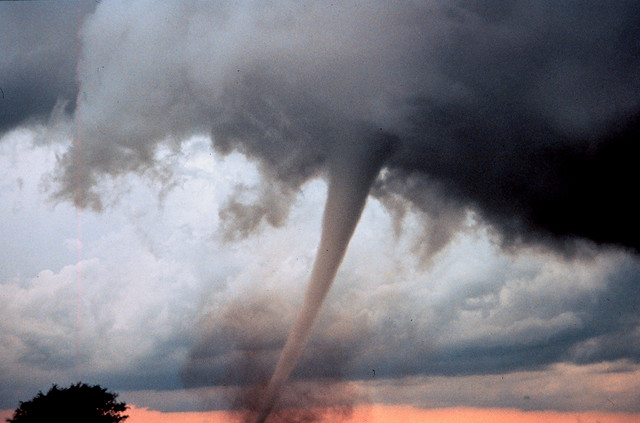Natural Disasters

During a tornado
Get to the basement or center of your house away from windows, or go to another building in the event of a tornado.
Thick blankets or a mattress should be used for protection since flying debris is the greatest danger.
If you hear a tornado warning for your area or a loud, continuous roar or rumble, which doesn’t fade in a few seconds like thunder, DO NOT go outside to look
After a tornado
- Keep your family together and wait for emergency personnel to arrive.
- Carefully render aid to those who may be injured.
- Stay away from power lines and puddles with wires in them; they may still be carrying electricity!
- Watch your step to avoid broken glass, nails, and other sharp objects.
- Stay out of any heavily damaged houses or buildings; they could collapse at any time.
- Do not use matches or lighters, in case of leaking natural gas pipes or fuel tanks nearby.
- Remain calm and alert, and listen for information and instructions from emergency crews or local officials.
A great resource center in dealing with preparedness is on Ready.gov, Make a Plan
Blizzards
- Prepare a 72-hour kit (emergency kit for emergencies, not just winter weather related) for power outages and blocked roads. Wind, ice, and snow may cause downed power lines. Make sure that you have candles, matches or lighters, a battery-operated radio, and emergency food supplies and a lot of blankets. Think about where you’ll put candles to keep them lit and safe. Have plenty of food staples like powdered milk and protein bars. If your water supply depends on an electric pump, always have bottled water on hand.
- Staying warm when the power goes is may a concern. Don’t assume you’re immune if you don’t use electricity to heat your home.
- Traveling in a blizzard should be avoided unless it is an absolute emergency. No trip is worth your life. If you feel you must travel, check road closures and conditions on COTRIP.org. This is a web site operated by the Colorado Department of Transportation which details closures and road conditions throughout the state. If roads are closed or travel may be treacherous, the best option would be re-scheduling your trip.
- If you get stranded in your car during a bad snowstorm be prepared with plenty of warm clothes and packaged snack foods. It may seem sensible to leave the engine running to keep warm, but it isn’t. The danger of carbon monoxide poisoning is high. Snow can block your exhaust pipe and fill the car with deadly fumes. Keeping one window open just a bit will help avoid this. A good idea is to run the engine in short bursts. Turn the engine on long to keep the car warm and then turn it off.
- Designate a spot, in the hall closet (or central location), to keep a bag of warm clothes.
- Along with warm clothes and blankets, consider stocking your 72 hour Kit with the following: batteries, flash lights, battery operated radio/television, bottled water, toilet paper, nonperishable foods such as cereal or crackers, canned goods, a non-electric can opener, a small cooler, candles, prescription medicines and any over-the-counter remedies you use regularly; and if you have young infants or toddlers – diapers, baby wipes, formula, baby food.
- Stock up on shovels and snow removal equipment.
- If you live in an area that gets bad storms regularly consider investing in an emergency generator.
- Have a cell phone.
- Unless you absolutely must go outside, STAY INSIDE and stay safe.
